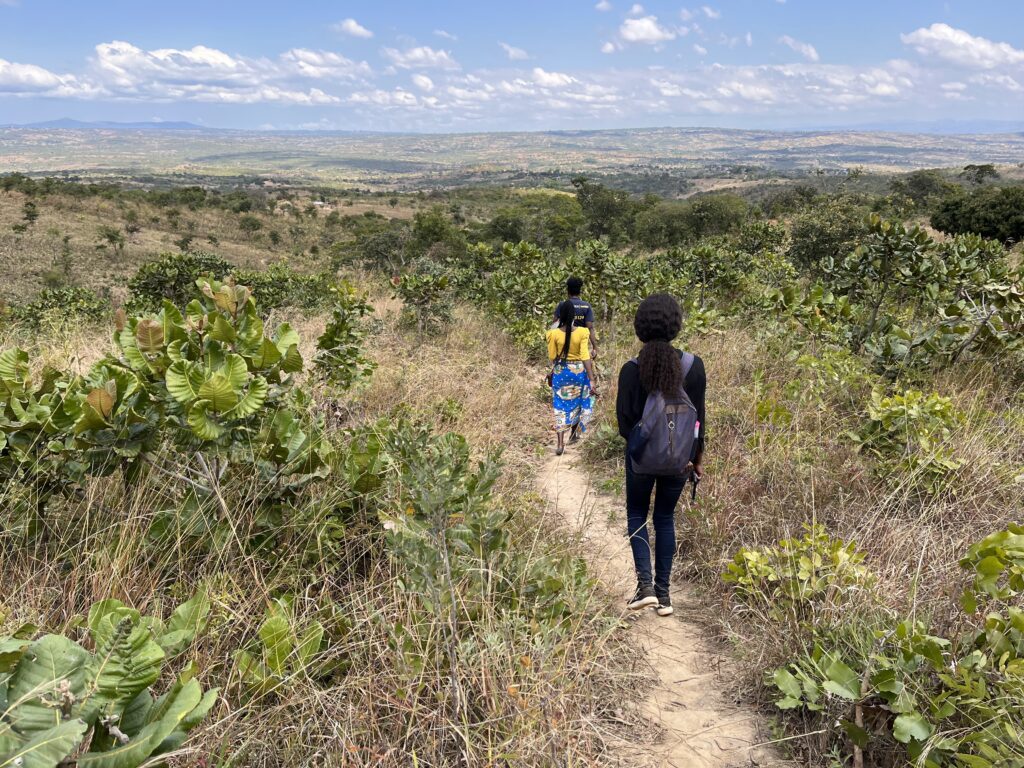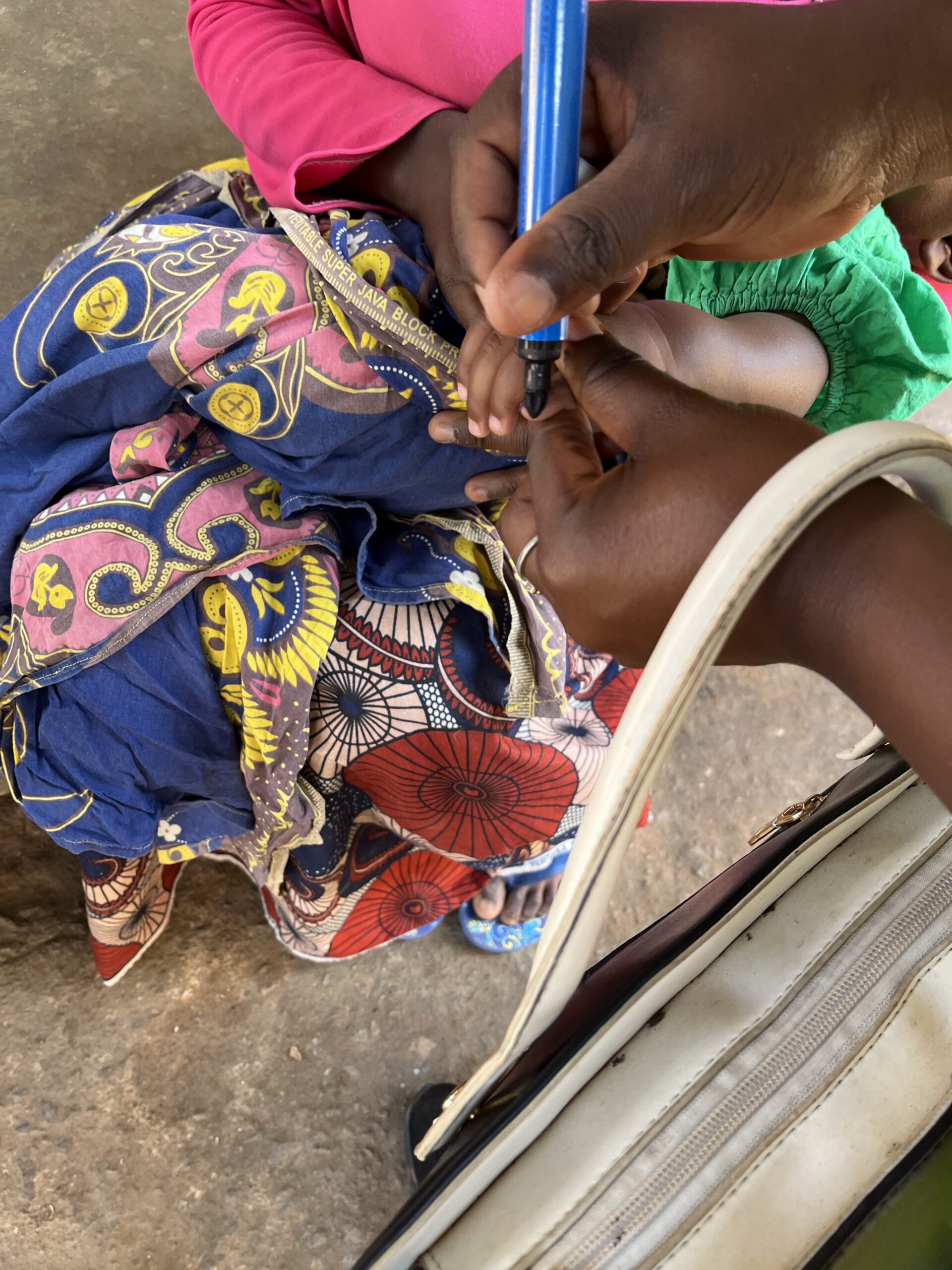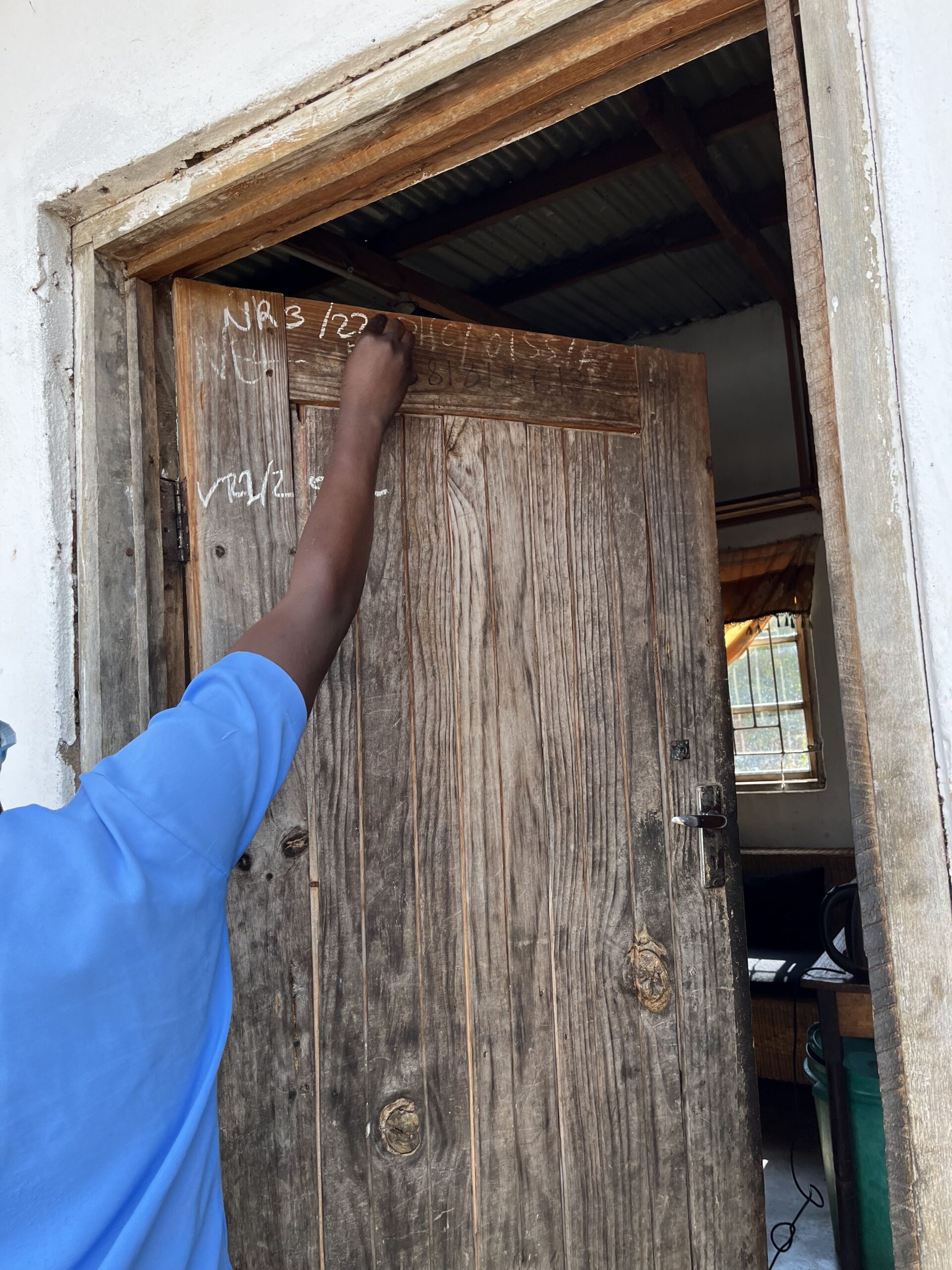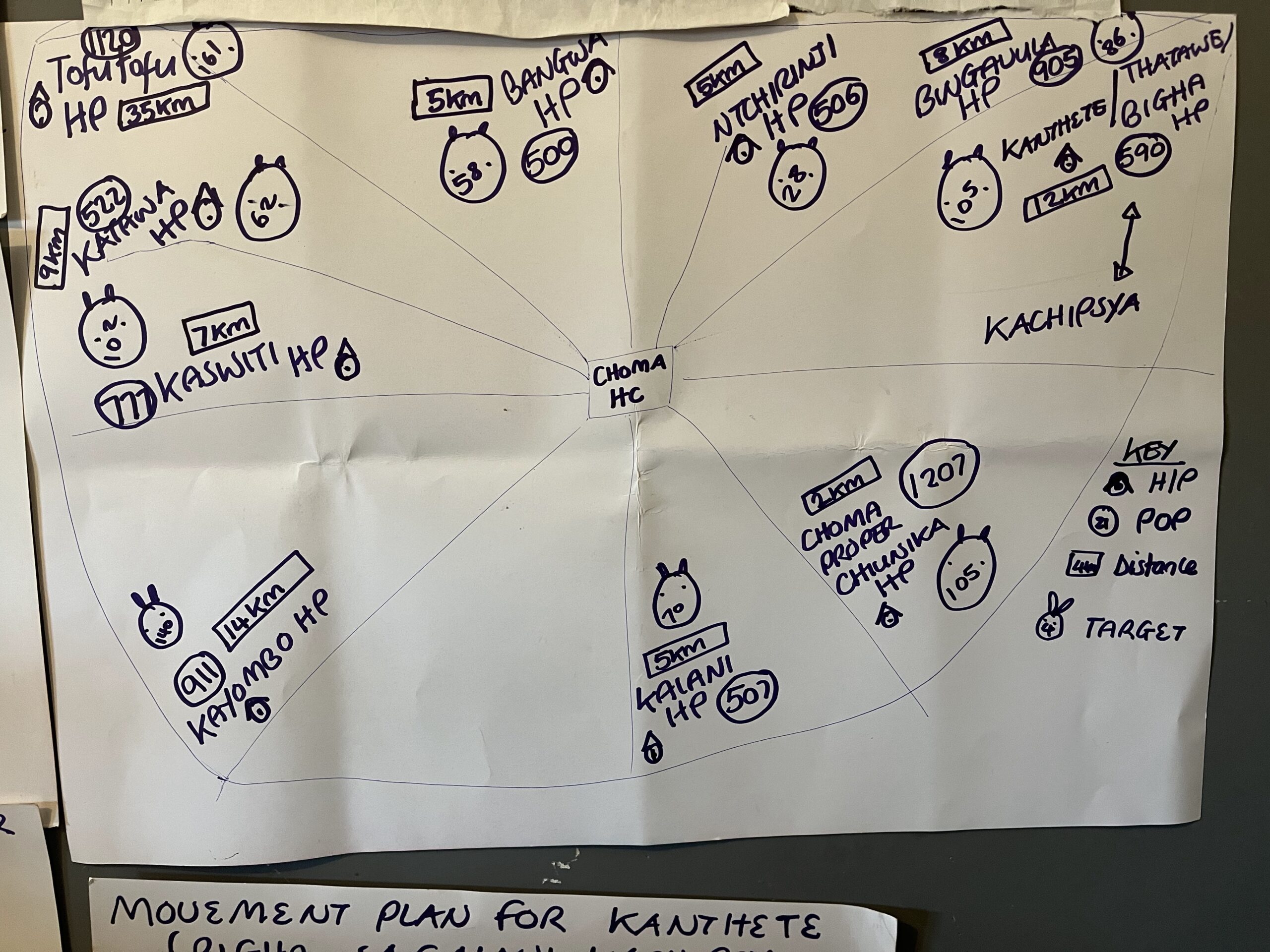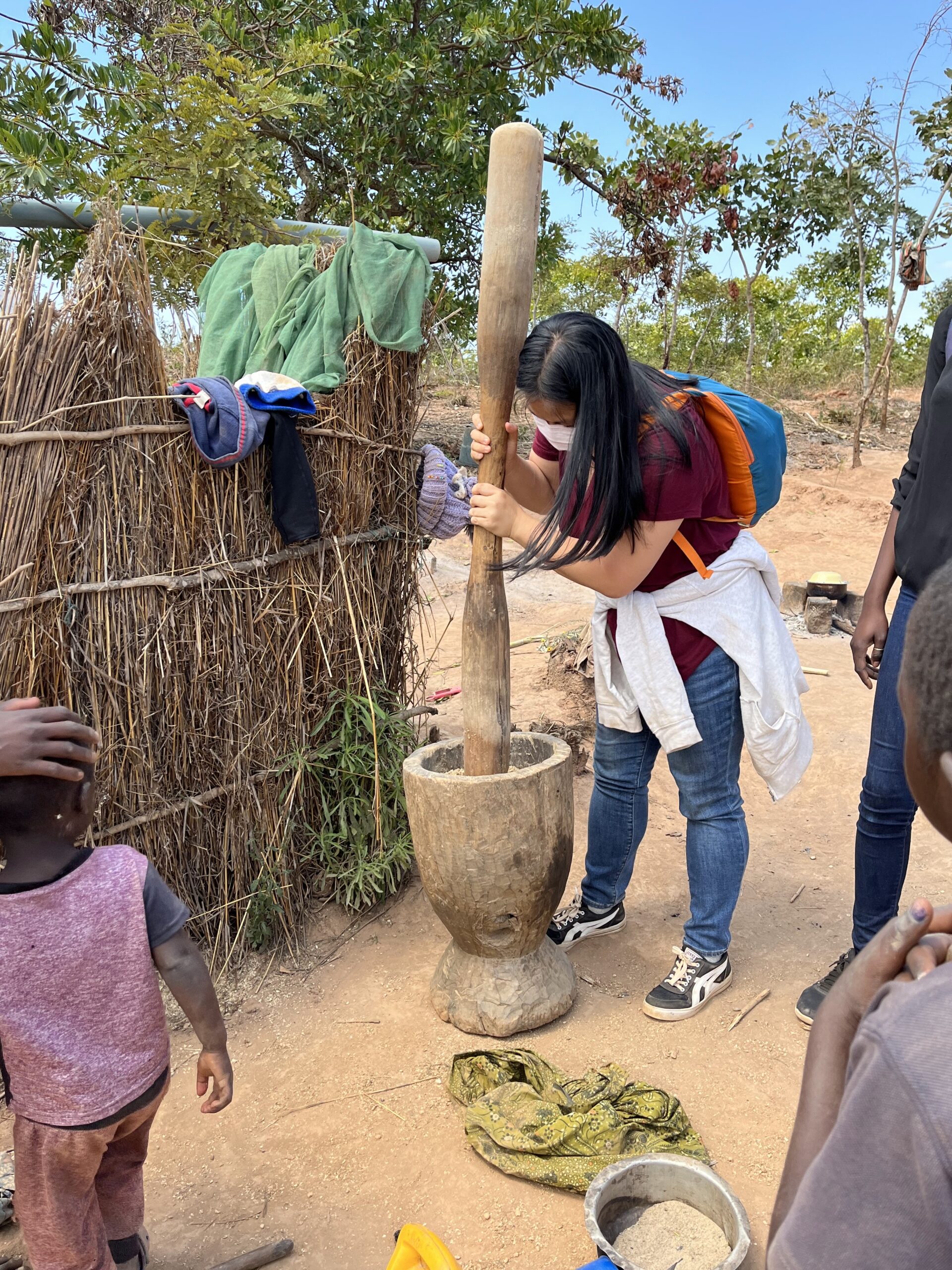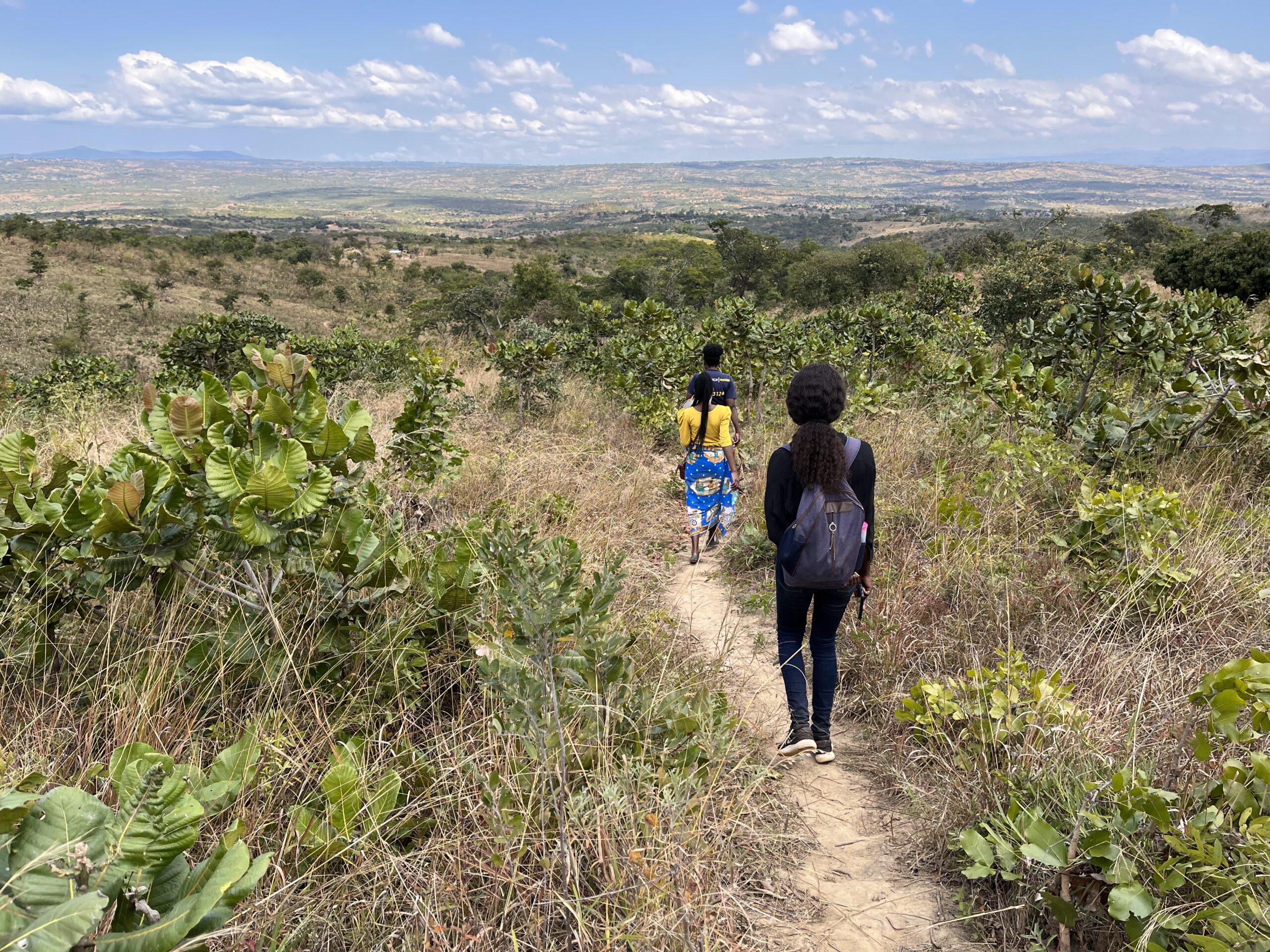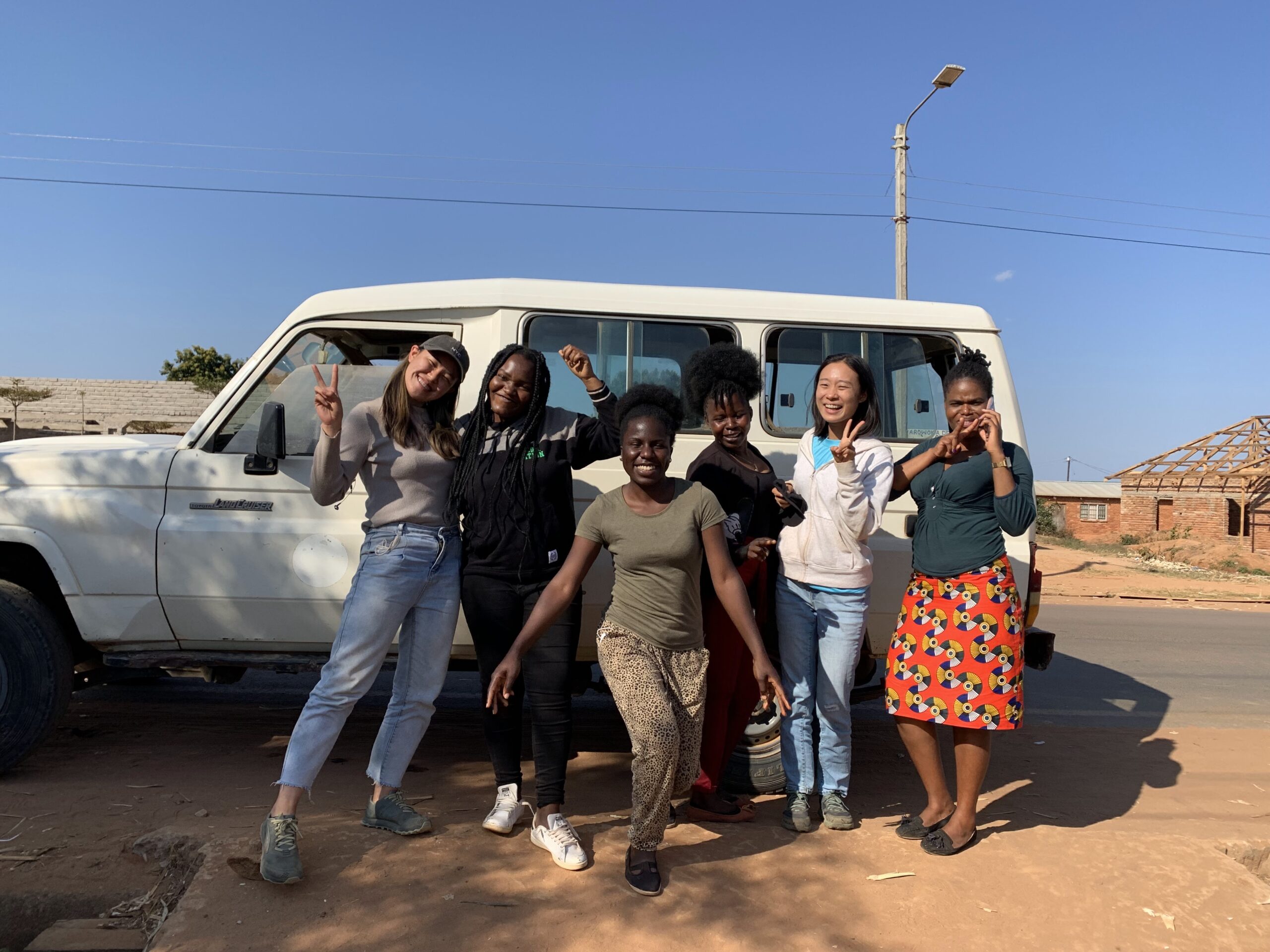For the last four days (Thursday to Sunday) the team has been out in the field working with the District Health Office (DHO) on surveillance for Round 3 of the Polio Vaccination Campaign. They each offered some thoughts on their experience.
-Rena-
The slogan “No one left behind”, I always see this when I’m looking at UN or other international non-governmental organization (NGO) documents. This time I was able to actually witness DHO working to achieve this. Now I know how it is done in the field, I can picture what the UN and other NGOs are doing and it makes it feel more real. It was also nice to see it from every perspective, including the DHO, health surveillance assistants (HSAs), and the parents, and interact with every stakeholder. It was especially inspiring for me because I want to work in this line of work. This was a great opportunity for me to learn how different stakeholders collaborate to achieve a mutual goal.
-April-
The places that Rena and I visited varied. Some of the places were very rural, the houses so far apart sometimes you can’t see the next house. All the volunteers and HSAs we ran into were very dedicated to their jobs, and cared about the populations they work with. Everyone in the villages knew them. I thought it was really nice that in each team there was an HSA and a community volunteer from the village, because it shows local involvement, which builds trust. We didn’t run into anyone who didn’t want the vaccine, even those who didn’t really understand what it was for. I guess they recognized the importance. According to someone at DHO, they said that vaccine hesitancy tends to be higher in the city compared to the rural areas, which is different from what I’ve experienced in the US. It was killer to have to get up for it (5:30 am every day), but overall, I really enjoyed seeing all the efforts that have been put into this campaign, how it is executed, and how wide-reaching it is. We went into these villages and the number of people we saw seemed so few, but overall, 20-30 thousand kids are being vaccinated each day around Mzimba North region of Malawi. It is incredible to see how everyone is working on a small part of it, but it contributes to something so large through individual action.
-Penny-
I remember going to a village and surveying the social mobilizers, one of the questions was if they had any comments on the campaign, and one of them said the pay was not quite enough for their transportation and meals. There were also two cases when their religion was against vaccination, but in the end, they were persuaded by the volunteers to accept the vaccines. Every village we went to, a lot of the households have under-five children. One of the houses we visited, the caregiver was the teenage elder brother, who took care of his four siblings while their parents work in Lilongwe. Some of the children would cry when we approached, because they thought we’re going to make them eat the vaccine again, but some would hold out their hand for us to check. Some of the households have crops, vegetables, and all kinds of animals. For them, even the Covid-19 pandemic did not affect their everyday lives, because they are self-sufficient, and the community has a good network and can help each other in need.
I think overall this was a very unique and great experience, to go into local villages, and see how much hard work is put in, going house-to-house to administer the vaccines, and to see how the whole Malawi comes together to achieve this, from the government officials that pushes for the campaign to the volunteers and workers who would go into the field. This is really difficult in areas with less population density and little transportation. The DHO staff also asked us how vaccination is done in Taiwan and the US. We’re so used to the concept of vaccination that we would go to the hospitals to get vaccinated, but here we were able to witness how knowledge and trust in public health and vaccination is established.
I think our role as supervisors in the campaign was very important, because we do find places where improvements could be made, so the structure of the campaign is very well thought out.
-Tiffany-
Everyone in the villages were nice and very passionate. It was interesting to see how population census is done from the bottom up, using GPS to locate households. It really is hard work. In the field you can see trust between the social mobilizers who promote the campaign, the workers who administer the vaccines, the team supervisors who make sure everyone is doing their jobs, and DHO staff who do spot checks. It’s a tight network that is built on mutual trust.
In the field we were also able to see the actual situation in Malawi. Everyone seems to be happy, but they are still facing many difficulties, including transportation, but they have a lot of life skills, which makes everything seem okay. During our trips we were able to chat with DHO volunteers who are closer to us in age. They worry about finding jobs, but they also think it would be okay to go back home to farm. One of them is a nurse, and she told us how the government distributes funds to hospitals, who would sometimes delay paying their salaries, but recently this situation and gender equality has improved due to the establishment of unions. However, most of them still need other part-time jobs to support themselves. Oh, we also found that playing cards and sharing meals together is a good way to interact!
-Miku-
It was a cool experience to visit local communities and to see households, the environment they live in, and the interaction within the village. The villagers we visited all welcomed us and were willing to answer our interview questions. We didn’t get to see student’s houses when we were working at Chiputula Primary School, so it was nice to have an opportunity to observe how people live in Malawi in-person. We were not able to be involved in the preparation process of the campaign, but I could see it took time and hard work, sending the materials to all the villages, educating the supervisors, and making sure the social mobilizers and vaccinators are doing what they are supposed to do. Different stakeholders were getting involved in the campaign, and a lot of effort was put into succeeding in the campaign, especially with limited resources such as internet data and fuel. We provided internet data when necessary for the health centers and the supervisors to complete their online questionnaires, and the SHANTU project also contributed to the fuel for the travel during the campaign. I enjoyed working with the teammates for four days, getting to know more about Malawi and life of the locals, exchanging views on religion, marriage, LGBTQ, and job employment.
-Jade-
It was really cool to meet all the different people from the different organizations, from World Health Organization (WHO), United Nations International Children’s Emergency Fund (UNICEF), DHO interns, and people from the city office, and to see them all coming together to help supervise the campaign. It was interesting to see that all the social mobilizers and volunteers were from local communities, so they know which households have children and which ones they may have missed, so we didn’t waste time wandering around the villages. They mentioned one of the cases in Mozambique was 13 years old, so they are talking about the possibility of expanding the campaign to kids 15 and under. Trying to get to that many children will take more than 4 campaigns. During this campaign, with each day less and less people are able to show up. On Sunday, we couldn’t get in touch with the local volunteer so we had to wander around and try to find the children on our own and it was difficult. It would be interesting to see how they resolve this issue of people not showing up or dropping out. Everyone was friendly, nice, and helpful. Even the villagers who spoke little English said thanks for bringing the vaccines. When we were having our meetings at DHO, they showed a lot of data and it seemed very organized in the mapping of the children and data collection. I was impressed with all the data they were collecting, and how well organized it is keeping track of all the children. However, when it comes to distributing us, the supervising teams, it seemed a little less well thought out. Some days we would wait a couple of hours for transport. It could be due to lack of vehicles. Overall, it was a great learning experience, getting to collaborate with so many people and to be able to help with such an important campaign.
Highlights:
- The team each offered their thoughts on their experience during the 3rd Polio Vaccination Campaign.
All the photos were taken by SHANTU (Verbal consent was obtained before taking the pictures)

